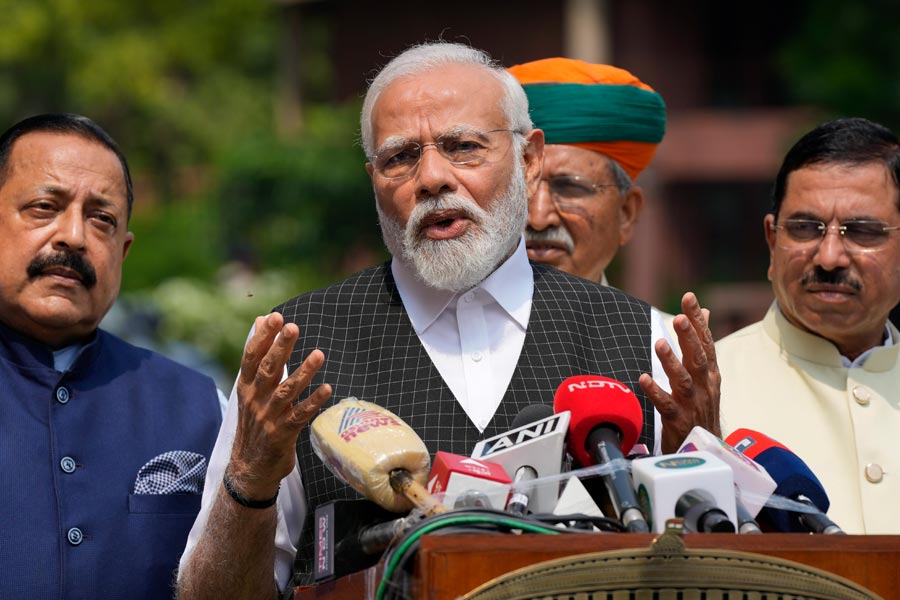The concept of no-return is hardly cheerful. And celebration is the last thing associated with it. Yet the Narendra Modi-led government has discovered a way to connect them. A parliamentary standing committee has recommended that those receiving national awards should give a written undertaking that they will never return the prize. In other words, the government’s love is not unconditional. Awards from the Sahitya Akademi and other institutes will henceforth hinge on the awardees’ signed acceptance of all omissions and commissions of the reigning power. A national award winner must be perceived not as an outstanding artist for which they should be honoured but as someone patronised by the government. And that only on the understanding that they will not express their anger or criticism even when people are killed by vigilantes or states seethe with violence and bloodshed.
The standing committee needed to shut stable doors after the horses bolted. In 2015, 40 writers and artists returned their prestigious awards in protest against the murder of a writer, M.M. Kalburgi, by vigilantes and that of Mohammad Akhlaq, falsely accused by vigilantes of storing beef. Other similar murders, such as that of Narendra Dabholkar, were also behind the artists’ rejection. Some writers, who were part of the agencies, resigned too because of the institutes’ failure to stand up for artists and writers. The point was the government’s inaction. But this episode stung. So the standing committee has tenderly nurtured the government’s sense of self-importance, built up by the ceaseless emanations of self-congratulation from the silent strongman at its centre. By ‘dishonouring’ awards bestowed by the government, the writers ‘shamed’ the country. The implied identification of the Modi government with ‘the country’ is not new.
The argument for ‘precautionary measures’ is that the award-giving academies are apolitical — are they? — hence awards cannot be returned for ‘political’ reasons. This is a frank attack on freedom of expression and an astonishing demand that artists should not be ‘political’. Since the reasons for the 2015 protest were crystal-clear, the committee’s recommendation may suggest also that writers cannot respond to the demands of humanity and justice; calling this ‘political’ because the protest was against the government is both self-serving and reductionist. Mr Modi and his men are ever fighting the shadow of independent thought. But in spite of weaponising laws and overturning principles of fairness and freedom, this shadow keeps slipping their grasp. Is it like Banquo’s ghost, terrifying Macbeth amid a feast of triumph? So after having exercised their control over scholarships, syllabi and thesis subjects, they have focused on national awards. These will be given only to compliant artists, who sign the no-return undertaking to ensure they receive the ‘honour’. It may have slipped the government’s understanding that this is the greatest dishonour for the awards, not their possible return. No-return awards may seem absurd, but they are a sinister symptom of the situation in the country.










